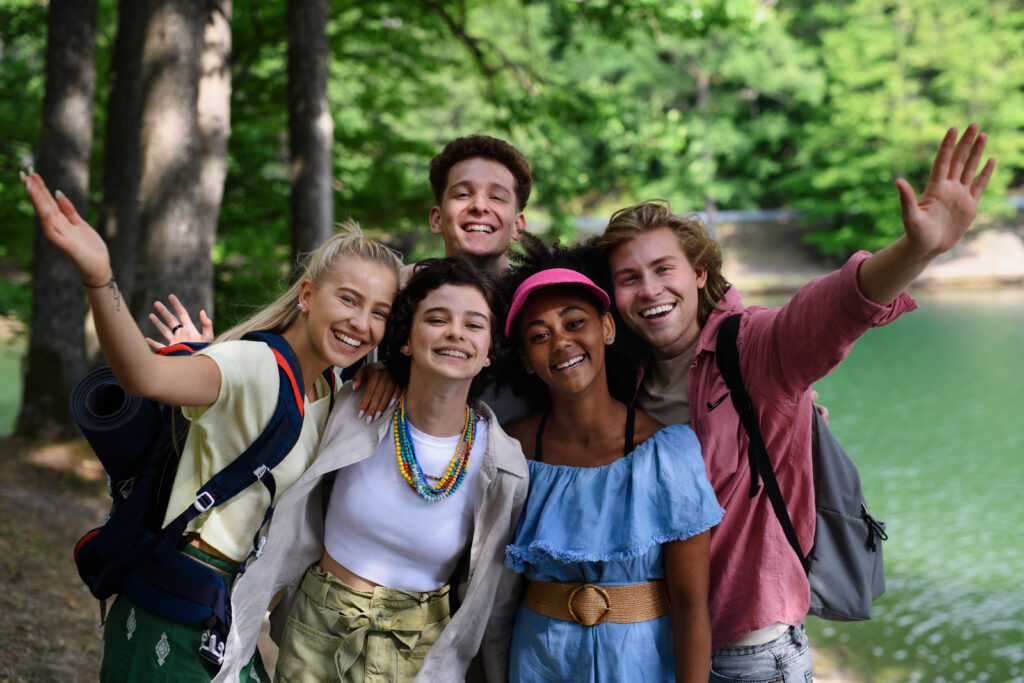Summer camps, where children go and stay in cabins and experience the great outdoors, learning teamwork and getting out of their parent’s hair, are a long and cherished tradition in the US, and still continue on today. A great many parents send their children to these every year, and see the clear benefits in doing so. As with all activities, however, not all camps are created equal, some simply offer more opportunities, or have something that may appeal to one student but not another. This often doesn’t make one inherently better, but often means one is much more suited to a particular student’s interests than others would be. In this article then, we’re going to review some of the best sleepaway camps in the US, to give you a sense of what your options are, and what each can provide. Let’s jump in!
Sleepaway Camps and Candidacy Building
Before we begin going through the list of camps themselves, we’re going to look at how participating in one of these camps can help students, and whether it’s a good choice for your summer. After all, there are many many different ways to spend summer vacation, and you want to find one that meets your needs.
These camps are generally best for younger students, especially those in middle school or about to begin high school. They offer a chance to learn some skills, but more than that, to experience time away from a constant deluge of technology, and to socialize with peers in a new environment. What these camps are best at offering is usually not hard skills, but the softer social ones that help support so much of what students end up doing.
A chance to be away from their parents for a spell, to get used to homesickness, to try new things (some of which they won’t like, some they will love); these are all great ways to prepare students for both the high school transition, and the eventual transition to college. It won’t cover every eventuality, but it will help them build experience and resilience to rely on.
Some of these camps do offer ways to explore science, or the arts, or other activities, and some of these are quite useful for helping students explore various interests. Upper level students, those in high school, are often better served by more focused opportunities, but younger ones can (and often do) benefit greatly from being exposed to a wide variety of different activities, to see which ones actually appeal to them.
The Best Sleepaway Camps in the US
We are not putting these in any particular order; all are great, but each has its own strengths. Note that we are only going to discuss camps in the US in this article, and that we are only discussing sleepaway camps, those where the camper actually spends the night there. Day camps offer their own possibilities.
Note that in terms of amenities and accommodations, many of these camps offer the same things. They are generally wholly nut-free, offer options for meals (including gluten free and vegetarian), and have multiple full-time medical staff in the event of an emergency.
Kieve-Wavus Camps
These are technically two camps, Kieve and Wavus, which operate in partnership. Kieve is an all-boys camp, and Wavus an all girls camp, located close to each other in Maine, and operating as sister organizations, based on the same philosophy. Both have been in operation for around a century, and follow a fairly traditional camp approach, with students taking part in sports, outdoor recreation, and significant numbers of excursions and camping trips.
Both serve students aged 8-17. They offer two 26 day sessions per summer, and cost $8,900. Applications open in September; they prioritize returning students and juniors; they run a special ten day program for students in grade 2-4. Enrollment is done on a rolling basis; spots fill quite quickly. All applications must be submitted online.
As a nonprofit, they do offer financial aid, all of which is need based. This ranges from covering part of the cost of tuition, to the full cost of the camp and travel expenses. You must apply for this when you apply to the camp.
Raquette Lake Camp
This is a pair of camps, one for boys and one for girls, on either side of a lake in Maine (as is the case for many of these camps). In operation for more than a century, this camp is known for prestige; students wear uniforms, there are private chefs on staff, and equipment and lodgings are state of the art.
The program and offerings are all you expect from a summer camp; outdoor activities, sports, arts, camping, chances to explore nature and get involved with any number of activities. The camp is open to students aged 6-15, and lasts for seven weeks each summer. The camp is fully screen free; campers are not permitted to bring their phones, which is often a selling point.
The cost for the camp is $17,450. Enrollment occurs online; this prioritizes siblings and returning campers. All new campers take part in a virtual interview as part of the enrollment process; this is with a camp director, and ensures students are a good fit for the camp.
Camp Laurel
This is a coed camp which operates different housing facilities for boys and girls, based around a single lake in Maine. The camp is further subdivided, with three separate campuses for each gender, divided up by age. Thus a large camp with a lot of facilities also offers a fairly small and intimate feel, where you get to know everyone else in your specific location. Though the boys and girls camps are separated, they do interact regularly.
The camp offers all of the classic activities, from sports to outdoorsmanship, plus some extras, including cooking facilities and an extensive equestrian program (though participation in that requires an extra fee). This is a six week camp for students aged 7-15.
The cost for Camp Laurel is $17,800. There are additional charges for equestrianism or extended trips, and they suggest students bring money for personal expenses during day trips. New families may enroll for the camp online; spaces are prioritized for returning campers, and are filled on a rolling basis.
Camp Bryn Mawr
This is a girls-only summer camp more than a century old, located in Pennsylvania. It is divided into junior and senior camps; both share a location and timing, but participate in different activities and primarily interact with other campers in their age group. The camp lasts for seven weeks, and is open to girls aged 7-15.
The camp offers a plethora of activities; from the more common outdoor recreation and athletics to a remarkable number of opportunities for gymnastics and equestrianism. Days are always quite busy, though campers do have freedom to decide which activities they focus on. As with many of these camps Bryn Mawr is screen-free, though they schedule times for phonecalls home.
The cost for the camp is $16,600; overnight trips for senior campers are an additional fee, and they recommend sending some spending money with campers for day trips and personal expenses. You may enroll for the camp online; they prioritize siblings and returning campers for enrollment.
Camp Manitou
Not quite a century old, this is an all-boys camp located in Maine, serving students aged 7 to 16. This is a seven week camp, and focuses on a traditional camp atmosphere; it is owned and run by a pair of former campers and staffers, who are interested in preserving the camp’s traditions.
The camp offers a full range of outdoor, athletic, and hands-on activities. Alongside traditional camping, woodworking, and athletics, they also offer performing arts and intellectual opportunities, including model rocketry. Campers have some freedom to choose which activities they take part in, especially older campers.
You may enroll for either half the summer for $10,550, or for the full summer for $17,650. Both have the same online enrollment. They prioritize returning campers; enrollment is handled on a rolling basis.
Camp Vega
Camp Vega is around ninety years old, and has been an all-girls camp for its entire history. This is a seven week camp, serving girls aged 7-15. On the shores of a lake in Maine, it boasts modern facilities and all of the classic camp amenities and traditions, featuring a large and state of the art campus.
Camp Vega offers a lot of flexibility to campers; many camps offer some, but Vega allows students to choose exactly which activities they want to focus on. They have a wide range of options, from outdoor recreation, to sports, to the performing arts, to equestrianism, to the fine arts. There are still some all-camp activities, but girls are generally encouraged to pursue what they like.
Tuition for Camp Vega is $17,300; this includes a deposit you must pay at time of enrollment, and two additional payments prior to the start of the summer. There are additional charges for campers who want to participate in equestrianism or ice skating. You must enroll for the camp online, these are processed on a rolling basis.
Camp Androscoggin
This is an all-boys camp located in Maine, serving students of ages 8-15. One of the oldest camps we’re discussing, they’ve been in operation since 1907, though they have of course updated their offerings and facilities many times in those years.
The camp offers the full range of traditional summer activities, from camping and watersports to athletics, archery, and rifle shooting. Campers have some flexibility in what they choose to do, though each is going to be filled with activities. They do also offer arts and indoor activities, everything from animation and digital music production to set design and pottery.
This is a seven week camp, though they also offer four week sessions (which can be extended. The full seven weeks costs $17,500, while the four week sessions costs $11,100. You can enroll in the camp online, enrollments are processed on a rolling basis.
Timber Lake Camp
This is a coed camp located in the Catskill mountains in upstate New York, lasting for seven weeks each summer and serving students aged 7-16. While the camp as a whole is coed, housing and certain activities and segregated between genders, with boys and girls separated.
Campers take part in a wide range of activities, watersports, outdoor recreation, athletics, and various crafts and hands-on activities. There are some things all campers are expected to participate in, but there are a range of electives as well; students are both encouraged to try a wide number of things, and given the chance to explore particular areas of interest.
Cost of tuition is $16,775 if you pay the full balance early, or $17,275 if you enroll in their automatic payment plan. Enrollment is done online and processed on a rolling basis; they recommend enrolling early, since space is limited and seats fill quickly.
Tripp Lake Camp
Founded in 1911, this is an all-girls camp with a long history, and one which places a premium on their long-held traditions. They offer a seven week session in summer, and serve girls from ages 7-16. The camp is based on the edge of Tripp Lake in Maine, and welcomes around 300 campers each summer.
The camp offers a wide range of activities, from outdoor recreation to sports to the arts and various hands-on activities. It also boasts a full equestrian program. Students have some opportunities to choose where to focus, though other activities are required for all campers. Overnight camping trips occur for girls in 6th grade and above.
Tuition for Tripp Lake is $17,500. They are committed to full season camping, but can make accommodations for parents’ schedules. Enrollment for the camp is done online, and is processed on a rolling basis.
Final Thoughts
These camps offer a lot of things in common, even if they each have their own unique opportunities. They are devoted to helping children disconnect from screens and explore the world around them, experimenting with new activities and experiencing new environments. They boast modern amenities like professional chefs and facilities, while harkening back to long traditions of outdoorsmanship, camaraderie, and a passion for adventure.
We hope that this article has shown you some of the scope of what these camps offer, and the level of variety they have; each is unique, with its own distinctions and traditions, but each strives to do the best they can for their campers.
If you are curious as to whether or not attending a summer camp is the right choice for you, or want advice on the best ways for students to spend their summers, then Ivy Scholars can help. Our mentors are experts at helping students find and pursue their passions, and at turning them into the kind of people and scholars that top colleges are eager to admit. Schedule a free consultation today to learn more about our program; we’re always happy to hear from you.








